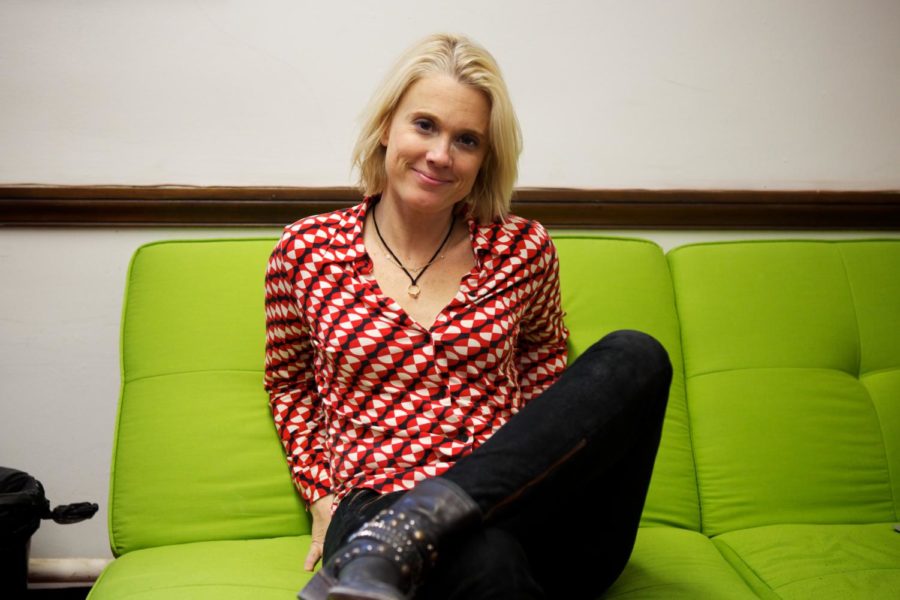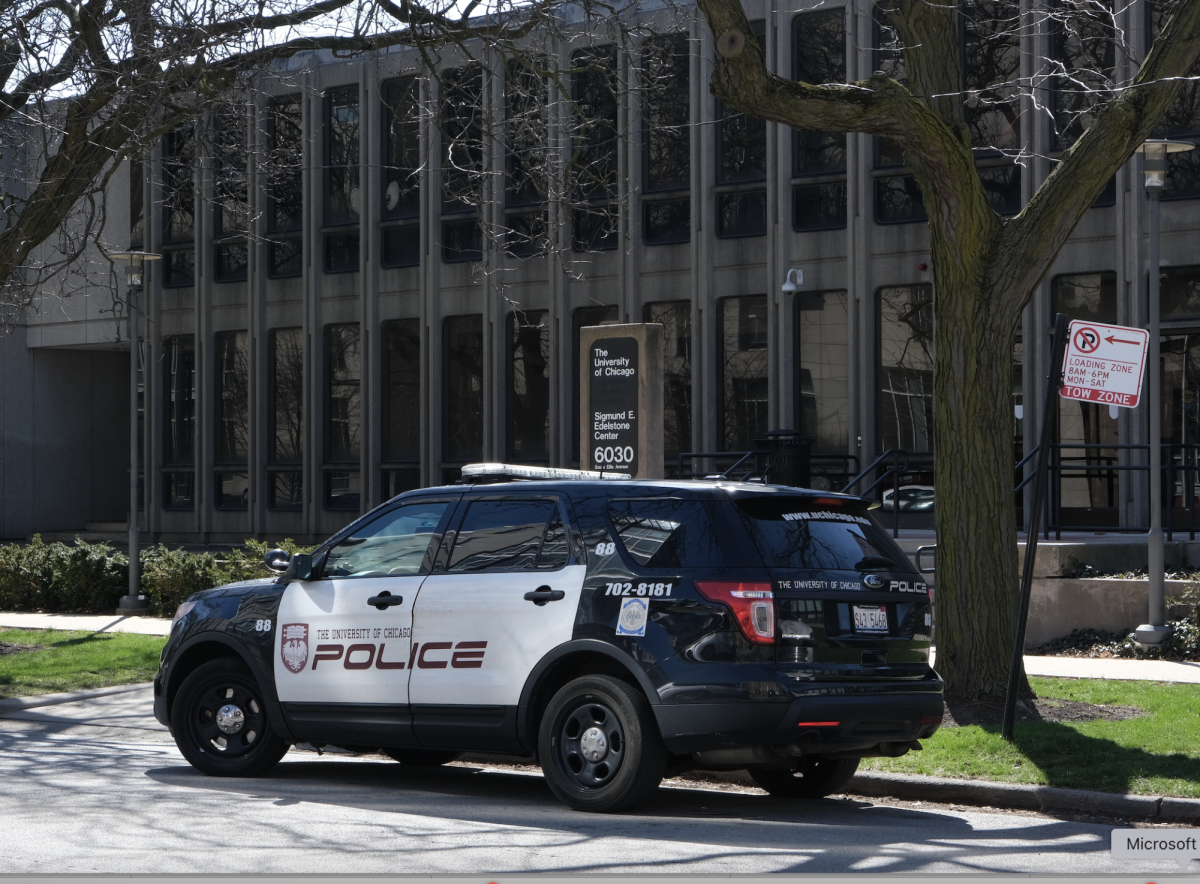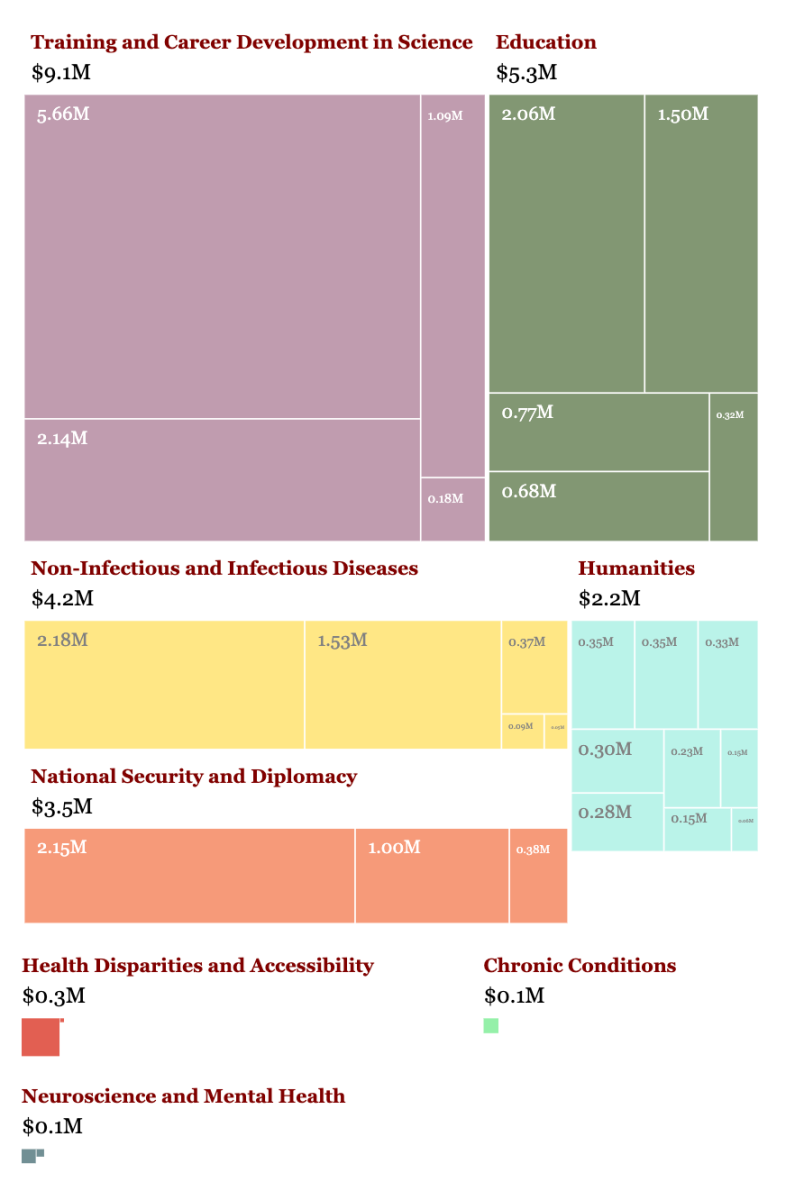GC: My brother got all the math genes in my family, but is it possible to describe your work to me in three sentences or less?
AW: My work is in an area called dynamical systems, which is a space that evolves over time according to a set of rules. Both planetary motion and the behavior of an ideal gas are dynamical systems on very different timescales, and both have the potential to display long-term chaotic features, which is what I study.
GC: And by chaotic features you mean?
AW: Randomness. Unpredictability, but also paradoxically a certain kind of stability. So what I’m really interested in is capturing chaotic phenomena that won’t go away, that are really robust.
GC: You won the Satter Prize a couple years ago, which recognizes outstanding research by female mathematicians. Do you ever feel underrepresented in your discipline?
AW: It’s a little hard to be one of so few women when you’re young. I do tend to look for people I can emulate, so it was hard when I went to Harvard as an undergraduate and there were no women on the faculty. There were zero women on the research faculty, not even in the postdoctoral level. When you don’t have any role models its difficult to convince yourself that that’s where you belong. But it’s improved dramatically—I was one of the very first female math faculty members at Harvard, and that was in ’95. Now it’s commonplace, but they’re still having trouble cracking the higher levels.
GC: Your husband also works in the math department at UChicago. That must be nice?
AW: I think earlier in our careers I would not have wanted to be in the same department as him—everyone’s looking for recognition when they’re young, so I think being side-by-side would’ve been tough. But we’re at a point where I think we’re both very established. I still was a little nervous—I had to come visit as a visitor to make sure I could handle being in the same department—but it was great. I love it. I’ve never seen him as a competitor, and I’ve been inspired by him.
GC: You grew up in Chicago, taught at Northwestern for 15 years. How does Northwestern compare to the University of Chicago?
AW: I have to be very careful with what I say here! Northwestern is definitely more of a preprofessional school, and this is more of an academically focused place, and that’s nice for someone who’s not in a professional department. Obviously, if you look at the President of Northwestern and the President of the University of Chicago, there’s a completely different mindset and focus. I much prefer the focus of Bob Zimmer…he is a mathematician!
GC: Have you always known you wanted to go into academia?
AW: Actually, when I got my Ph.D., the job market in academic mathematics was horrible, and people were scrambling for jobs, and a lot of people just decided to step out of it all and go into finance. And so in the back of my mind I thought if I don’t get a job I could go work on Wall Street. A lot of people I know did that and got very rich and created the mess we had.
GC: What’s one thing about math that’s different from other disciplines?
AW: Part of what I like about math is that a lot of discoveries are made by very young people—you’ll meet someone as an undergraduate, and five years later they’ll solve a difficult math problem and have a significant breakthrough. The field is so lively, it moves at such a fast pace compared to something like the laboratory sciences. It’s not just a young person’s game, but they have such a say in the field, which keeps everyone young
GC: Just out of curiosity, your bookshelf is full of math textbooks and an out-of-place copy of Jonathan Franzen’s The Corrections. Is there a story behind that?
AW: (Laughs) Why is that in my office! When the book came out I read it at Northwestern and really liked it a lot, and it’s such a big book that I never bothered to take it home. Then when I was moving here I put all my books in a box, including Jonathan Franzen’s book (laughs). So there it is, I still haven’t brought it home!
GC: Well it’s good that you still have time for fiction.
AW: I try to! I like to read—you have to turn your brain off from time to time.
GC: What are your plans for the next few years?
AW: I have a bunch of interesting projects that I’m working on. I don’t have a plan though—that’s one thing I like about math, you sort of don’t know where you’re going to be in a year. But I’m looking forward to just being here, making it my home.
See the full interview feature here.









